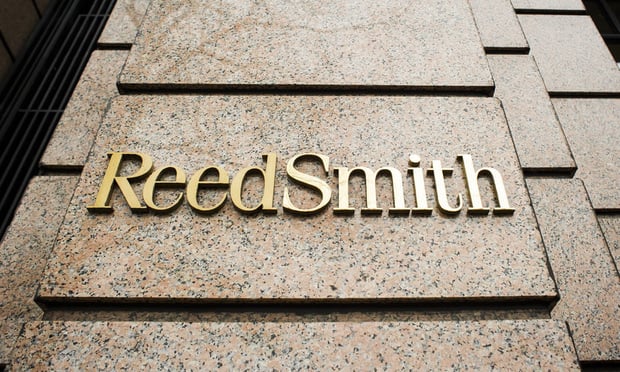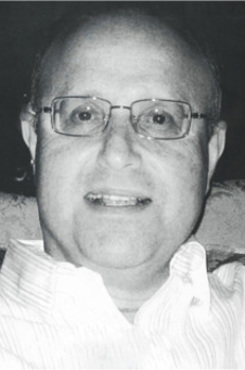Reed Smith Partner's Widow Loses $3 Million Verdict on Appeal
A Chicago jury's $3 million award to the widow of former Reed Smith partner Stewart Dolin has been dismissed after an appeals court held that GlaxoSmithKline was prevented by the FDA from adding a suicide warning to the label for Paxil.
August 23, 2018 at 02:03 PM
4 minute read
 (Photo: Diego M. Radzinschi/ALM)
(Photo: Diego M. Radzinschi/ALM)
A federal appeals court has thrown out a $3 million verdict awarded last year to the widow of a former Reed Smith partner, ruling that federal law prohibited pharmaceutical giant GlaxoSmithKline plc from adding a suicide warning label to an antidepressant that the plaintiff argued caused her husband's death.
Former Reed Smith partner Stewart Dolin committed suicide in downtown Chicago in 2010 while taking a generic version of Paxil, a drug formerly manufactured by GSK. Dolin's widow, Wendy Dolin, sued GSK and alleged that the company covered up results of a clinical study that showed the drug paroxetine had caused suicides in adults. A federal jury in Chicago awarded Stewart Dolin's family $3 million in April 2017.
The U.S. Court of Appeals for the Seventh Circuit ruled Wednesday that the case should have been dismissed before trial because GSK was prevented in 2007 by the U.S. Food and Drug Administration from adding suicide as a warning for adults on the label for Paxil.
 Stewart Dolin
Stewart DolinManufacturers of generic drugs are required to use the same warning label from a drug's branded version, which led to the dismissal of generic drug manufacturer Mylan Inc. from Wendy Dolin's suit in 2014.
“GSK asked the FDA for permission to modify the paroxetine label as plaintiff argues was needed,” Seventh Circuit Judge David Hamilton wrote for a three-judge panel. “The FDA said no, repeatedly. Federal law thus pre-empted plaintiff's Illinois law claim that GSK should have warned of a risk of adult suicidality on the paroxetine label in 2010.”
GSK had added a suicide warning for adults to its Paxil label in 2006, following its own study that showed a statistically significant increase in the risk of suicide among clinically depressed adults. But a broader review of trial data regarding antidepressants known as SSRIs by the FDA in 2007 was less conclusive.
The regulator required that all drugs in the SSRI family, including Paxil, use the same warning label that said “studies did not show an increase in the risk of suicidality … in adults beyond age 24,” said the Seventh Circuit in its ruling this week.
Following that 2007 decision by the FDA, GSK asked four times to update its Paxil label to include an adult suicide warning for paroxetine. The FDA refused those requests.
“These requests by GSK and the responses are clearly documented. They are not subject to reasonable dispute. This is clear evidence that, as of 2007, the FDA rejected an adult‐suicidality warning for paroxetine,” the Seventh Circuit said.
The trial last year shed light on the personal stress and anxiety that can be a side effect of Big Law mergers. GSK argued that the 57-year-old Stewart Dolin committed suicide as a result of fears of inadequacy and a potentially diminished role at Reed Smith, which he joined in 2007 when the global legal giant acquired Sachnoff & Weaver, where Dolin served on the midsize Chicago shop's management committee.
GSK turned to King & Spalding and Dentons for trial work and Arnold & Porter Kaye Scholer on appeal. Wendy Dolin was represented by lawyers from Baum, Hedlund, Aristei & Goldman and the Rapoport Law Offices in Chicago.
This content has been archived. It is available through our partners, LexisNexis® and Bloomberg Law.
To view this content, please continue to their sites.
Not a Lexis Subscriber?
Subscribe Now
Not a Bloomberg Law Subscriber?
Subscribe Now
NOT FOR REPRINT
© 2025 ALM Global, LLC, All Rights Reserved. Request academic re-use from www.copyright.com. All other uses, submit a request to [email protected]. For more information visit Asset & Logo Licensing.
You Might Like
View All
DLA Piper Hires Former FAA Chief Counsel as Transportation Practice Co-Chair

Diversity Lab Alters DEI-Centered Verbiage on Mansfield Certification Website


Big Tech Is Cozying Up to President Trump. Here's Why Their Lawyers Are Cautiously Optimistic
Trending Stories
- 1Class Action Litigator Tapped to Lead Shook, Hardy & Bacon's Houston Office
- 2Arizona Supreme Court Presses Pause on KPMG's Bid to Deliver Legal Services
- 3Bill Would Consolidate Antitrust Enforcement Under DOJ
- 4Cornell Tech Expands Law, Technology and Entrepreneurship Masters of Law Program to Part Time Format
- 5Divided Eighth Circuit Sides With GE's Timely Removal of Indemnification Action to Federal Court
Who Got The Work
J. Brugh Lower of Gibbons has entered an appearance for industrial equipment supplier Devco Corporation in a pending trademark infringement lawsuit. The suit, accusing the defendant of selling knock-off Graco products, was filed Dec. 18 in New Jersey District Court by Rivkin Radler on behalf of Graco Inc. and Graco Minnesota. The case, assigned to U.S. District Judge Zahid N. Quraishi, is 3:24-cv-11294, Graco Inc. et al v. Devco Corporation.
Who Got The Work
Rebecca Maller-Stein and Kent A. Yalowitz of Arnold & Porter Kaye Scholer have entered their appearances for Hanaco Venture Capital and its executives, Lior Prosor and David Frankel, in a pending securities lawsuit. The action, filed on Dec. 24 in New York Southern District Court by Zell, Aron & Co. on behalf of Goldeneye Advisors, accuses the defendants of negligently and fraudulently managing the plaintiff's $1 million investment. The case, assigned to U.S. District Judge Vernon S. Broderick, is 1:24-cv-09918, Goldeneye Advisors, LLC v. Hanaco Venture Capital, Ltd. et al.
Who Got The Work
Attorneys from A&O Shearman has stepped in as defense counsel for Toronto-Dominion Bank and other defendants in a pending securities class action. The suit, filed Dec. 11 in New York Southern District Court by Bleichmar Fonti & Auld, accuses the defendants of concealing the bank's 'pervasive' deficiencies in regards to its compliance with the Bank Secrecy Act and the quality of its anti-money laundering controls. The case, assigned to U.S. District Judge Arun Subramanian, is 1:24-cv-09445, Gonzalez v. The Toronto-Dominion Bank et al.
Who Got The Work
Crown Castle International, a Pennsylvania company providing shared communications infrastructure, has turned to Luke D. Wolf of Gordon Rees Scully Mansukhani to fend off a pending breach-of-contract lawsuit. The court action, filed Nov. 25 in Michigan Eastern District Court by Hooper Hathaway PC on behalf of The Town Residences LLC, accuses Crown Castle of failing to transfer approximately $30,000 in utility payments from T-Mobile in breach of a roof-top lease and assignment agreement. The case, assigned to U.S. District Judge Susan K. Declercq, is 2:24-cv-13131, The Town Residences LLC v. T-Mobile US, Inc. et al.
Who Got The Work
Wilfred P. Coronato and Daniel M. Schwartz of McCarter & English have stepped in as defense counsel to Electrolux Home Products Inc. in a pending product liability lawsuit. The court action, filed Nov. 26 in New York Eastern District Court by Poulos Lopiccolo PC and Nagel Rice LLP on behalf of David Stern, alleges that the defendant's refrigerators’ drawers and shelving repeatedly break and fall apart within months after purchase. The case, assigned to U.S. District Judge Joan M. Azrack, is 2:24-cv-08204, Stern v. Electrolux Home Products, Inc.
Featured Firms
Law Offices of Gary Martin Hays & Associates, P.C.
(470) 294-1674
Law Offices of Mark E. Salomone
(857) 444-6468
Smith & Hassler
(713) 739-1250










